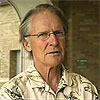Research/Academic Showcase
Texas Tech Researchers Find Elevated Arsenic and Lead Levels in New Orleans
Chemistry Professor Earns $1.54 Million Grant for Protein Separation Device
Dramatic Tour of Vietnam Leaves Lasting Impact on Students, Faculty
Alumni Highlights
Texas Tech Alumni Association Endorses Raider Ranch
Llano Wines and Texas Tech: a Tasty Combination
Reunion 2006: Relive. Rekindle. Reconnect.
Development
Athletics
Football Coach Receives Raise, Contract Extension
Texas Tech University Press
Helpful Links
Taking Recovery on the Road
Educators Mull Recovery Programs as Need Increases.
Research/Academic Showcase
Video
Watch Laura Jones- 
Watch Jack Lavino, University of Colorado. CU's new Center for Students in Recovery modeled their program after the successes at Texas Tech University. (Flash 0:18) 
Watch Kitty Harris, Director for the Center of Addiction and Recovery at Texas Tech University. Dr. Harris showed off our new 17,000 sq. ft. facility during the National Association of Recovery Schools Conference hosted here in August. (Flash 0:13) |
With its beer-soaked mythos of keg parties and night-long binges, there is perhaps no more perilous place for a recovering drug or alcohol addict than a college campus.
So, as alarming drug and alcohol statistics continue to mount, Texas Tech’s Center for the Study of Addiction and Recovery is faced with a daunting task: continue providing a supportive haven for Texas Tech students who have kicked drug and alcohol addictions – and replicate that success on other campuses.
“We are trying to make colleges less dangerous and more accessible for recovering students,” says Kelly West, external relations officer for the center.
This is no easy task. The average campus of 30,000 students has nearly 9,500 who meet the criteria for substance abuse disorders. Nearly 40 percent of student attrition involves substance abuse.
Leading the Way
Texas Tech established the model for curbing these trends in 1986, when it created the Center. Since that time, the program’s peer-based approach has helped more than 500 recovering students graduate – with a collective GPA of approximately 3.34, no less. Only seven percent of active participants have suffered relapses.
“Students who may not have been able to continue attending another school come to Texas Tech and, thanks to the support they receive, are able to be successful students,” says Center director Dr. Kitty Harris.
Due largely to this success, the center is now moving to a larger location – part of a roomy new $8 million expansion that also will house the College of Human Sciences’ Child Development Research Center – and has snagged a federal grant that will allow Harris to replicate the program’s success on other college campuses.
Using this money, Harris has helped establish recovery communities at schools including the University of Colorado at Boulder and the University of Texas at San Antonio. The center also has developed a curriculum that lays out basic steps for schools to develop such programs.
New Growth
The growing popularity of recovery schools was evident in July, when Texas Tech hosted the 5th Annual Association of Recovery Schools Conference.
Patrice Salmeri, director of Augsburg College’s StepUP Program, remembers the first such conference, held in 2001; only around a dozen high schools and a handful of college programs participated. Those numbers have more than doubled in five years.
The conferences also have inspired new programs. As director of adolescent services at Fairbanks Treatment Center in Indianapolis, Ind., Rachelle Gardner was troubled by the high relapse rates she saw in recovering substance abusers – especially among teens.
Hoping to diminish the trend, she had begun researching new approaches to recovery when she found her inspiration at an Association of Recovery Schools conference held at Rutgers University.
Two years later, Hope Academy will open its doors as the first recovery high school in Indiana next week, offering an educational curriculum with an emphasis on recovery support.
“You have to be successful in recovery before you can be successful in education,” Gardner says.